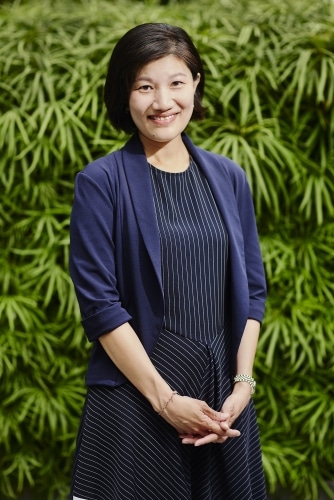Icon Cancer Centre Medical Oncologist, Dr Lee Guek Eng specialises in young women cancers and believes more needs to be done to help support this cohort of patients.
“When young women are diagnosed with cancer they are often at a vulnerable or pivotal time in their lives. They might be trying to start a family, or focussing on their career and juggling other life factors. As an oncologist, I want to ensure they are supported from the start of their diagnosis through to treatment and survivorship this includes linking them to the right support services,” Dr Lee said.
There are a number of different treatment paths women can take when diagnosed with cancer, these range from surgery to chemotherapy, radiation therapy and/or endocrine therapy and targeted therapies. Side effects vary for each treatment type with a number of factors to consider particularly for young women. Chemotherapy can potentially bring about early menopause which can affect fertility and can sometimes render women infertile. For young women planning to start a family, or have more children it is important for them to understand the implications of treatment and ensure they receive all the necessary information.
“There is a need to work closely with fertility experts and gynaecologists to ensure patients seeking advice are able to receive a comprehensive fertility plan before they start cancer treatment. Connecting patients with specialists to discuss their options and potentially undergo fertility preservation procedures is an important step in caring for young female cancer patients.”
Currently the gold standard for fertility preservation is embryo cryopreservation, which has evolved over the past few years, with the procedure now only taking two to three weeks compared to one to two months. In Singapore patients have to be legally married to undergo this procedure and should consider this as a form of fertility preservation before starting cancer treatment.
Genetic testing and counselling is also a factor to consider when diagnosed with cancer at a young age. Oncologists should discuss the risk of hereditary cancer and provide options of genetic counselling and testing, including advice to patient’s relatives. For breast cancer it is important to understand the different risks associated with the BRCA1 and BRCA2 gene. BRCA – an abbreviation for ‘BReast CAncer gene have been found to impact a person’s chances of developing breast cancer. The BRCA gene is responsible for producing tumour suppressor proteins which are needed to maintain stability of cells. Without this gene cells are liable to become unstable because they cannot repair, which can lead to cancer cells developing and the growth of tumours. Women who test positive for the BRCA1/2 gene are at a higher risk of breast and ovarian cancer, as well as triple negative breast cancer – a more aggressive form of cancer.
If tested positive for the BRCA gene, women should consult their Medical Oncologist regarding risk reduction surgery such as a mastectomy.
